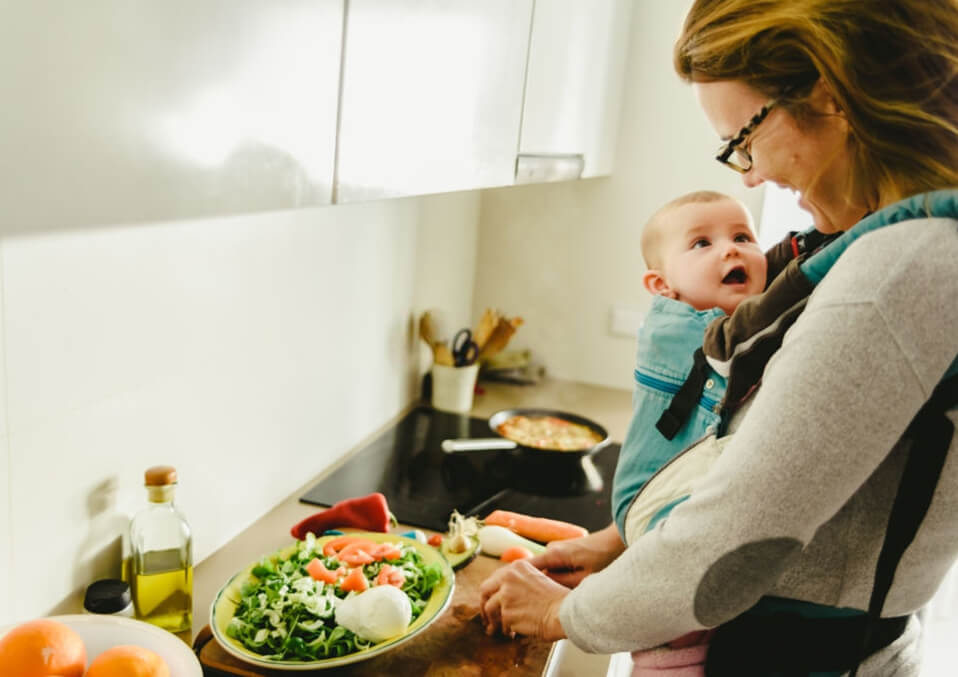It is a common scenario when the baby refuses to eat, the spoon hits the floor, and he or she is now making faces and shudders. This happens when you attempt to feed your baby with solid foods. It can be frustrating when parents are already excited to finally be able to feed their babies with solid food but they refuse to eat it.
When it is about time for your baby to eat solid food, it can be pretty challenging sometimes. Sometimes it is a hit but sometimes it’s a miss for you, so don’t worry. Most babies refuse to eat solid food from time to time. There are many reasons why your baby refuses to eat solid food sometimes.
Just like any normal person, your baby sometimes loses his appetite when he is unwell or feeling under the weather. Maybe your baby has sore throat or colds, or he is teething. He may refuse to eat because he is too tired. If your baby is not sick and just doing well, it could be that he is just not hungry for the moment that’s why he refuses to eat. The truth is, your baby’s appetite varies every meal and every day. His stomach might be full of the frequent night feed and have less appetite for solid food in the following day time. Another possible reason is that he might not like the taste and texture of the food you are feeding him. Or it could be that the food is very hot or it is very cold.
Actually, younger babies often eat happily many different foods, but as they grow older, they could reject new tastes and textures. Sometimes, when you offer a new food to your baby, he might refuse it at first.
To help parents with this dilemma, here are some effective tips you can use when babies refuse to eat solid foods:
Do not stick on the food he or she likes, continue to introduce new flavors

Usually, babies love sweet tastes because it is more appealing to them. They usually hate sour or bitter foods. Strongly flavored vegetables are usually the ones they reject. It includes Brussel sprouts, watercress, or kale. Even though he might reject the food, do not just stick on the food that he likes. You need to keep on offering him different kinds of food and flavor. It is perfectly normal when he rejects new food or flavors. So you need to persevere and offer food repeatedly as many as eight times and he might then accept it.
Observe your baby’s reaction to food
It is important that you observe your baby. If you feed him and he won’t open his mouth, turns his head away, spits out his food, he probably isn’t hungry. If he pushes the food away, cries and shouts, it could mean that he really doesn’t want to eat. The best way to react is to stay calm and just try again after some time. Remember not to pressure your kid so much in eating, and don’t force an extra mouthful of food. It could just make your feeding time stressful and he might refuse some food completely.
Stay calm and keep mealtimes relax

Try to keep feeding time calm and relax. Avoid putting unnecessary stress in it and avoid long meal times. Your baby will just be bored and will most probably just refuse. When your baby likes to eat, he will consume the food faster. Be assured that changes in the appetite of your baby are nothing to worry about. It is unlikely that babies refuse food because of a problem in his health. But you can consult your doctor if your baby is not gaining weight or his appetite never improved.
Sometimes, when you prepare something really delicious and nutritious for your baby, he might just refuse it. You can’t help but feel worried and frustrated when the food you prepared just went to the sink.
The truth is, there is no “best” first food, although a good start would be iron-rich foods such as fish, meat, and eggs. You can also try to introduce new food and flavor one at a time, and wait three to five days before introducing another one. That is also useful when your baby has an allergy to a food, you will then know it. An important quality you should display is perseverance. You need to continue feeding the baby with a certain flavor even when he refuses it 15 times so that you will really know he doesn’t like it. It could be that he doesn’t like the texture, so you need to make different consistencies and make him try it.

It is best to cook it tenderly, finely minced, or mashed. As the baby develops his oral motor skills, food textures should also progress. Make sure that the portion is small. Make sure as well that the distractions during meals are minimized, and it helps to have eye contact with your baby. Don’t try to trick your kid into taking one more bite or put on the TV for distraction.
It is important to help your baby eat solid foods now that he is six months to a year old because it would be more difficult and challenging to teach them when they are already past one year old. Your baby might not start the conventional or usual first solid foods but slowly but surely, he will enhance his appetite in solid food and will love it. It will help the baby get the nutrients he needs and gain the desirable weight. We hope that this article helps you learn why babies sometimes refuse to eat solid food and learn about the tips and tricks on how they can eventually enjoy eating them.
Read also:
- The Healthiest Vegetables to Feed Your Babies
- How Much Should a Newborn Eat: Guidelines to Follow?
- Baby-Led Weaning Facts and Food Suggestions for Your Babies


